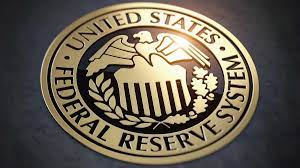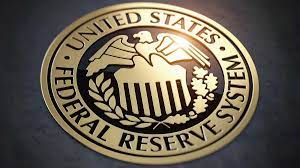
The Federal Reserve will most likely have to increase interest rates more than anticipated in the face of current strong data, and it is prepared to take larger steps if the "totality" of incoming information indicates that tougher measures are required to control inflation, Fed Chair Jerome Powell told U.S. lawmakers on Tuesday.
"The latest economic data have come in stronger than expected, which suggests that the ultimate level of interest rates is likely to be higher than previously anticipated," the U.S. central bank chief said in his semi-annual testimony before the Senate Banking Committee.
While some of the unforeseen economic strength may have been attributable to warm weather and other seasonal conditions, Powell believes it may also be a sign that the Fed needs to do more to contain inflation, possibly returning to larger rate increases than the quarter-percentage-point steps officials had planned to use in the future.
"If the totality of the data were to indicate that faster tightening is warranted, we would be prepared to increase the pace of rate hikes," Powell said.
Powell's remarks were his first since inflation unexpectedly rose in January, and they marked a stark acknowledgement that the "disinflationary process" he repeatedly mentioned in a Feb. 1 news conference was not proceeding smoothly.
Senators responded with a slew of questions and pointed criticism centered on whether the Fed was correctly diagnosing the inflation problem and whether price pressures could be tamed without causing significant harm to economic growth and the labor market.
Democrats on the committee focused on the role that high corporate profits may be playing in persistent inflation, with Massachusetts Senator Elizabeth Warren charging that the Fed was "gambling with people's lives" by raising rates that, according to the Fed's most recent projections, would cause the unemployment rate to rise by more than a percentage point - a loss previously associated with economic recessions.
"You claim there is only one solution: Lay off millions of workers," Warren said.
"Will working people be better off if we just walk away from our jobs and inflation rebounds?" Powell retorted.
"Raising interest rates certainly won't stop business from exploiting all these crises to jack up prices," said Senator Sherrod Brown, a Democrat from Ohio who chairs the committee.
Republicans questioned whether energy policy was limiting supply and keeping prices higher than necessary, as well as whether restrained federal spending could help the Fed's cause.
"The only way to get this sticky inflation down is to attack it at the monetary side and the fiscal side. The more we help on the fiscal side, the fewer people you will have to throw out of work," said Senator John Kennedy, a Republican from Louisiana.
"It could work out that way," said Powell, who at a separate point in the hearing agreed with Democratic lawmakers' assertions that lower corporate profits could help lower inflation, and with Republicans' arguments that more energy production could help lower prices.
"It's not for us to point fingers," the Fed chief said.
A quick repricing in bond markets followed Powell's comments, which essentially guaranteed that Fed officials would project a higher endpoint for the institution's benchmark overnight interest rate at the upcoming March 21–22 meeting. Investors increased their bets that the Fed would approve a half-percentage-point rate hike when they meet in two weeks.
The current range of the Fed's policy rate is between 4.50% and 4.75%. Officials estimated that rate would rise to a peak of about 5.1% by December; investors believe that rate may now move at least 0.5 percentage points higher.
Equity markets continued their downward trend from the day's beginning, with the S&P 500 index falling more than 1.5%.
The yield on the 2-year Treasury increased above 5%, reaching its highest level since 2007. The U.S. dollar also increased.
Powell's statement was "surprisingly hawkish," said Michael Brown, a market analyst with TraderX in London. Brown predicted that a positive monthly jobs report on Friday would most likely result in "calls for a 6% terminal rate," nearly a percentage point higher than what Fed officials had anticipated as of December. This puts a 50-basis-point rate hike into effect.
Powell cited an inflation report the following week and the Labor Department's February jobs report due out on March 10 as being crucial in determining what the Fed does at its next meeting.
Powell will testify again on Wednesday before the U.S. House of Representatives Financial Services Committee.
The hearing and Powell's testimony focused attention on a topic that is currently the focus of Fed discussions as officials try to predict whether recent data will turn out to be a "blip" or ultimately signal that inflation remains stickier than thought and requires a tougher response from the Fed.
In his testimony, Powell said that the labor market was still maintaining a 3.4% unemployment rate, which had not been seen since 1969, and significant wage increases, suggesting that much of the impact of the central bank's monetary policy may still be in the works.
Powell acknowledged on Tuesday that "there will very likely be some softening in labor market conditions," despite his belief that the Fed's 2% inflation target can still be achieved without having a significant negative impact on the U.S. labor market.
The exact amount is still unknown, but Powell stated that the behavior of inflation will continue to be the main focus.
Since Powell's previous appearances before Congress, inflation has decreased. The Consumer Price Index peaked in June at an annual rate of 9.1% and fell to 6.4% in January; the Personal Consumption Expenditures Price Index, which the Fed uses as the foundation for its 2% target, peaked in June at 7% and fell to 5.4% in January.
But Powell said that number is still too high.
"The process of getting inflation back down to 2% has a long way to go and is likely to be bumpy," Powell said, adding later in the hearing that "the social costs of failure are very, very high."
(Source:www.moneycontrol.com)
"The latest economic data have come in stronger than expected, which suggests that the ultimate level of interest rates is likely to be higher than previously anticipated," the U.S. central bank chief said in his semi-annual testimony before the Senate Banking Committee.
While some of the unforeseen economic strength may have been attributable to warm weather and other seasonal conditions, Powell believes it may also be a sign that the Fed needs to do more to contain inflation, possibly returning to larger rate increases than the quarter-percentage-point steps officials had planned to use in the future.
"If the totality of the data were to indicate that faster tightening is warranted, we would be prepared to increase the pace of rate hikes," Powell said.
Powell's remarks were his first since inflation unexpectedly rose in January, and they marked a stark acknowledgement that the "disinflationary process" he repeatedly mentioned in a Feb. 1 news conference was not proceeding smoothly.
Senators responded with a slew of questions and pointed criticism centered on whether the Fed was correctly diagnosing the inflation problem and whether price pressures could be tamed without causing significant harm to economic growth and the labor market.
Democrats on the committee focused on the role that high corporate profits may be playing in persistent inflation, with Massachusetts Senator Elizabeth Warren charging that the Fed was "gambling with people's lives" by raising rates that, according to the Fed's most recent projections, would cause the unemployment rate to rise by more than a percentage point - a loss previously associated with economic recessions.
"You claim there is only one solution: Lay off millions of workers," Warren said.
"Will working people be better off if we just walk away from our jobs and inflation rebounds?" Powell retorted.
"Raising interest rates certainly won't stop business from exploiting all these crises to jack up prices," said Senator Sherrod Brown, a Democrat from Ohio who chairs the committee.
Republicans questioned whether energy policy was limiting supply and keeping prices higher than necessary, as well as whether restrained federal spending could help the Fed's cause.
"The only way to get this sticky inflation down is to attack it at the monetary side and the fiscal side. The more we help on the fiscal side, the fewer people you will have to throw out of work," said Senator John Kennedy, a Republican from Louisiana.
"It could work out that way," said Powell, who at a separate point in the hearing agreed with Democratic lawmakers' assertions that lower corporate profits could help lower inflation, and with Republicans' arguments that more energy production could help lower prices.
"It's not for us to point fingers," the Fed chief said.
A quick repricing in bond markets followed Powell's comments, which essentially guaranteed that Fed officials would project a higher endpoint for the institution's benchmark overnight interest rate at the upcoming March 21–22 meeting. Investors increased their bets that the Fed would approve a half-percentage-point rate hike when they meet in two weeks.
The current range of the Fed's policy rate is between 4.50% and 4.75%. Officials estimated that rate would rise to a peak of about 5.1% by December; investors believe that rate may now move at least 0.5 percentage points higher.
Equity markets continued their downward trend from the day's beginning, with the S&P 500 index falling more than 1.5%.
The yield on the 2-year Treasury increased above 5%, reaching its highest level since 2007. The U.S. dollar also increased.
Powell's statement was "surprisingly hawkish," said Michael Brown, a market analyst with TraderX in London. Brown predicted that a positive monthly jobs report on Friday would most likely result in "calls for a 6% terminal rate," nearly a percentage point higher than what Fed officials had anticipated as of December. This puts a 50-basis-point rate hike into effect.
Powell cited an inflation report the following week and the Labor Department's February jobs report due out on March 10 as being crucial in determining what the Fed does at its next meeting.
Powell will testify again on Wednesday before the U.S. House of Representatives Financial Services Committee.
The hearing and Powell's testimony focused attention on a topic that is currently the focus of Fed discussions as officials try to predict whether recent data will turn out to be a "blip" or ultimately signal that inflation remains stickier than thought and requires a tougher response from the Fed.
In his testimony, Powell said that the labor market was still maintaining a 3.4% unemployment rate, which had not been seen since 1969, and significant wage increases, suggesting that much of the impact of the central bank's monetary policy may still be in the works.
Powell acknowledged on Tuesday that "there will very likely be some softening in labor market conditions," despite his belief that the Fed's 2% inflation target can still be achieved without having a significant negative impact on the U.S. labor market.
The exact amount is still unknown, but Powell stated that the behavior of inflation will continue to be the main focus.
Since Powell's previous appearances before Congress, inflation has decreased. The Consumer Price Index peaked in June at an annual rate of 9.1% and fell to 6.4% in January; the Personal Consumption Expenditures Price Index, which the Fed uses as the foundation for its 2% target, peaked in June at 7% and fell to 5.4% in January.
But Powell said that number is still too high.
"The process of getting inflation back down to 2% has a long way to go and is likely to be bumpy," Powell said, adding later in the hearing that "the social costs of failure are very, very high."
(Source:www.moneycontrol.com)





